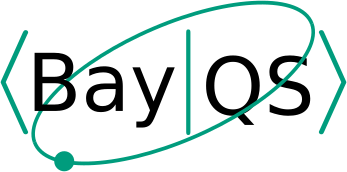Medical imaging data (MRI or CT scans, for example) plays a vital role in diagnosing and treating serious diseases. Because of this, artificial intelligence (AI) and machine learning methods – such as image analysis based on deep learning – are becoming an increasingly important part of medical diagnostics. However, the deep neural networks (DNNs) often used in these processes require a large amount of image data in order to make reliable conclusions. Depending on the situation, this training data may only be available in small quantities and can be expensive to obtain. It is also highly complex.
Not only that, but there are high stakes associated with AI-based systems in medical applications. Since an incorrect diagnosis can have serious consequences for the individual patient, the decision-making process in the AI system must be transparent and comprehensible. In addition, any uncertainty present in the diagnosis should be quantifiable.
Together with the University Hospital at Munich’s Ludwig-Maximilians-Universität (LMU), Fraunhofer IKS has set itself the goal of improving medical diagnoses through hybrid quantum computing-based machine learning models in a project that is focusing on highly reliable QC-based artificial intelligence for medical diagnostic tasks.
The advantage of a hybrid approach combining quantum technology and conventional methods is that it opens up the option of using an NISQ (noisy intermediate-scale quantum) computer. These computers are already available for industrial use.
Fraunhofer IKS is working on two approaches to improve medical diagnostics with the help of quantum computing:
- Improved training through quantum convolutional neural networks (QCNNs)
The aim of using QCNNs is to improve training with little data. In these networks, standard convolutional levels are replaced by quantum circuits. The MNIST dataset has already demonstrated that this approach improves training and increases accuracy even where smaller image data quantities are available. Fraunhofer IKS is transposing it to high-resolution image data in practical medical applications.
- Reliable uncertainty determination through quantum Bayesian neural networks (BNNs)
The advantage of BNNs is that they consistently rely on probability distribution rather than point estimation (which DNNs use). Cases involving complex tasks quickly become too much for BNNs to cope with as they can no longer be trained at that point. However, quantum computing-based BNNs make training possible even in the case of complicated tasks, ensuring reliable uncertainty determination when it comes to making diagnoses.
These quantum computing approaches could help achieve a breakthrough in the field of AI-based diagnostic processes. One of the long-term goals is to improve early and follow-up diagnoses of brain tumors – but every other machine learning application could also benefit from more efficient training through quantum computing, thanks to the time and costs saved. Combining quantum computing and artificial intelligence can be particularly beneficial in any safety-critical area that requires specific assessments of uncertainty to be reliable – mobility, production and medicine are some examples.

 Fraunhofer Institute for Cognitive Systems IKS
Fraunhofer Institute for Cognitive Systems IKS